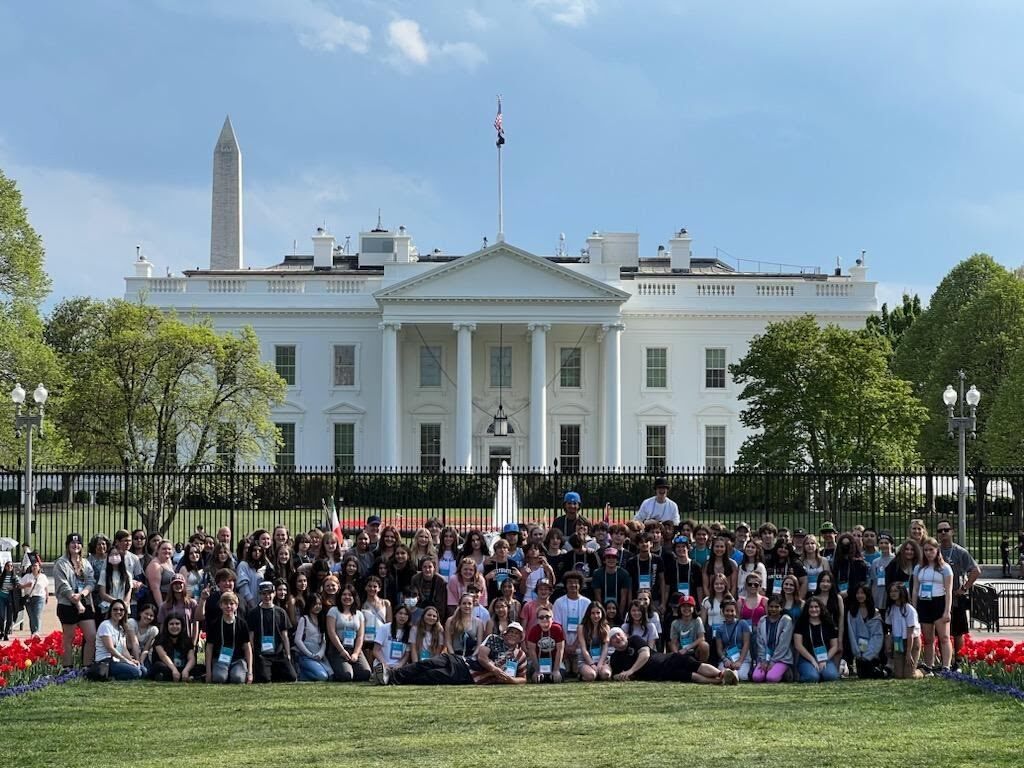Hotel Safety Standards with Pat Neimeyer, Student Travel Expert


Like all other aspects of student travel, we’re still figuring it out. Over the past few weeks we’ve been researching and talking with student travel industry experts to learn about what travel will look like in a post-Covid19 world.
If you’re interested in learning about motor coach travel or travel best practices, check out our Facebook for our previous interviews.
In this interview, Pat Neimeyer shares what she has learned from our hotel partners about new health and wellness procedures.
Pat is a Tour Operations Manager and has worked in the tourism industry for over twenty five years. Pat is also our California and West-Coast Representative, and spends most of her day communicating with hotel managers, writing attraction guides, and researching new museums and historic sites. Thanks for being part of the team, Pat!
{% video_player “embed_player” overrideable=False, type=’scriptV4′, hide_playlist=True, viral_sharing=False, embed_button=False, autoplay=False, hidden_controls=False, loop=False, muted=False, width=’1920′, height=’1080′, player_id=’30026442777′, style=” %}
If you prefer your videos on short form, feel free to visit out Facebook page.
Question One: What are hotels doing to help keep travelers safe during their stay?
(0:45)
Hotels are really working hard to ensure that they have a new set of standards of cleanliness for all guests, whether it be the leisure traveler or the business traveler. Hotels are doing this by brand. We’ve seen a good set of standards from Hilton, Embassy Suites, Sheraton, and Marriott. Those are the types of hotels we use here at NationsClassroom, brand-affiliated hotels. Those standards may be a little bit higher than some of the off-brand hotels.
When you come into a lobby, you’ll see free-standing hand sanitizer. Now the front desks are going to have Plexiglas on them. They’re going to have regular standard cleaning for elevator buttons, things like that. They are using a hospital grade chemical for cleaning purposes. A lot of them will also be using electrostatic cleaners and sprayers, whether it be in hallways or high-traffic areas.
Hotels are rethinking what goes in the room, for instance the pad and pencil you find by the phone, that will be removed. Some of the coffee-makers, any paper menus or books, those will be removed. Hotels will issue paper things when you check-in at the front desk for personal use while you’re there. The same goes for amenities, they may now be packaged individually and handed out as travelers check-in. For our student groups, they’ll receive four packs per room, one for each traveler. They were phasing out of that some time ago [most hotels were beginning green-initiatives and trying to remove plastics] but they are realizing that during this epidemic they’re having to rethink things.
Also, hotels have made great changes. The linens have changed over the years. They don’t have those big heavy bedspreads anymore. The new linens get taken off and cleaning every day. They are also limited how many times housekeepers come into the room, there will be new sanitizing schedules, and some of them will even have PPE to prevent any sort of transmission or cross-contamination.
They’re rethinking the common areas and gathering points. For instance, breakfast buffets, which we use a lot with our student groups, will probably now be served by catering people. We won’t be touching it as much. Or it might be a plated breakfast.
It’s all in how we look at it. It may be by destination, it may be by property, but we too are thinking the same things.
Same thing with key-less check in, that may become a thing of the future. Everyone will have their own key point.
There’s lots of changes, but we’ll keep up with it. When we do our departure notes and meetings for our travelers, we’ll update them on what to expect so it won’t be any surprise. It will be our new way of travel.
Question Two: What will our NationsClassroom representatives be doing to help keep travelers safe while at the hotel? (4:05)
Some of the big things are for future registrations, we’ll also be offering double occupancy if the tour leader and travelers feel more comfortable with that instead of quad occupancy. We’ll definitely make sure we have blocked rooms. Hotels will be more conscious of this and be keeping our group nicely and tightly together on a floor, this is also good for security purposes.
We’re also happy to say that special meals and things like that will still be in place. Some of our hotels, we’ve asked to double sheet the beds if the students are in a quad occupancy room. They’re very willing to do that. There won’t be gathering places in the lobby: we’ll come down after breakfast, board the bus, and roll out. We won’t be gathering in the lobby because a lot of places will be limited indoor gatherings to 25-30 persons.
We’ll be making sure teachers and students are prepared. With our on-site coordinators and tour guides, that will be an easy thing to do. They’ll keep everyone informed and up-to-date.
Pat elaborates on what our On-Site Coordinators will be doing prior to check-in. (5:49)
They will be cross-checking room blocks. We get the room blocks sent to the office ahead of time, but sometimes there can be a very last minute change. They’ll be continuing to do that. Initially they will have masks and gloves on to keep them safe as well as our travelers. They will be onsite to help if there are any concerns or provide support and assistance.
We will also rely on the close working relationship between the office staff and on-site coordinators to get information out to teachers.
Follow us on social media to stay up-to-date with our travel safety videos. We’re on Facebook, Twitter, and LinkedIn, and we’d love to answer any additional questions you have about travel safety.
When you’re ready to start planning your next student travel adventure, check out our sample itineraries for the Historic East Coast.


